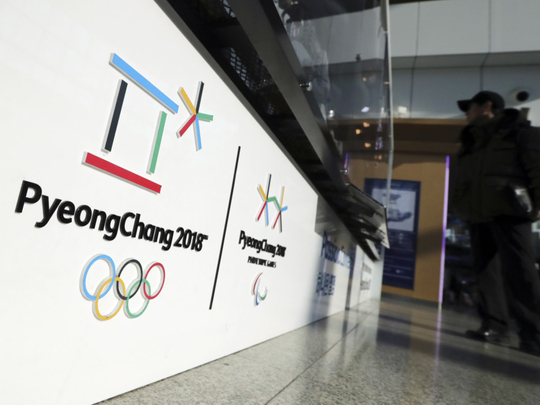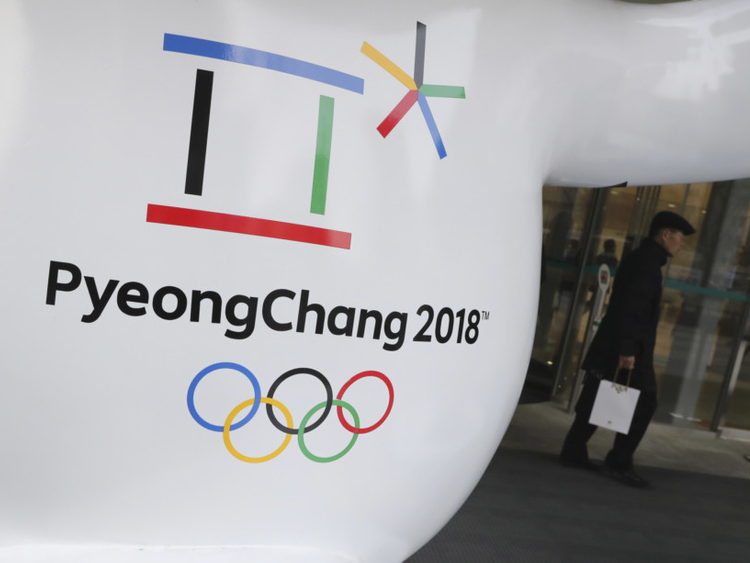
The International Olympic Committee (IOC) may have suspended Russia’s team from the 2018 Winter Games in Pyeongchang, South Korea, over a system of doping, but the ruling — which allows Russian athletes to compete under a neutral flag — is a joke, a non-punitive punishment meant to save face while protecting the IOC’s and Russia’s commercial and political interests.
I feel entitled to say this because I had conducted the investigation on behalf of the World Anti-Doping Agency.
The 2016 report of the Wada investigation found that Russia operated a state-sponsored doping programme on a level not seen since East Germany’s and, in the process, cheated hundreds of clean athletes of their rightful place on Olympic and World Championship pedestals. Nevertheless, Russia is now lobbying to have hundreds of athletes compete in Pyeongchang, where they will enter as “Olympic Athletes From Russia” — hardly a neutral designation, as the IOC suggests. They may also be allowed to exit the closing ceremony under the Russian flag with “Russia” on their uniforms.
In 2016, the International Paralympic Committee (IPC) had no problem swiftly barring Russian athletes from the Rio Olympics. The IPC president, Philip Craven, noted that Russia placed “medals over morals” and in so doing made a mockery of the Olympic Charter.
I acknowledge that expulsion of all Russian athletes is a strong discipline, but severity is both just and necessary. The IOC’s cowardly decisions before the Games in Rio, and again now, have not deterred but rather emboldened Russia’s future cheating endeavors without fear of any true reprisal.
The only real deterrent value here is toward truth-telling whistle-blowers.
The initial revelations of Russia’s doping programme were a result of the bravery of the whistle-blowers Yuliya Stepanova and Vitaly Stepanov. This husband (a former employee of the Russian antidoping agency) and wife (an elite runner) possess a selfless and concerned patriotism. For their honourable intentions, the couple were labelled traitors and forced to flee their homes for fear of being killed.
They believed in clean sports; so did I when I started the investigation. As it grew, I realised it was larger than I had suspected and would require more resources. That’s when I realised that it was not just the doping world that was the problem, but also the antidoping world. My requests for additional investigators were denied by my Wada bosses — the head of Wada is also an Olympic committee board member. So I decided to leak the whistle-blowers to a trusted German reporter who made a high-profile documentary. I was the world’s primary antidoping investigator at the world’s flagship antidoping entity — and I was working around my own organisation.
I knew that public embarrassment is the coin of the realm in the Olympic movement. As I hoped, the documentary pressured Wada to provide me with resources for a full-scale investigation.
The investigation supported a Russian athlete’s claim and corroborative testimony given by other Russian athletes that 99 per cent of their national-level teammates were doping. We discovered that when a Russian athlete rose to the national level, he or she had no choice in the matter: It was either dope, or you’re done. Athletes and coaches were connected with Russian doctors who designed doping regimens, and actually trafficked and stored controlled substances within Russian Sport Ministry buildings.
I spent most of my career as an agent with the Drug Enforcement Administration investigating drug cartels, and even they were less brazen. Everyone from Russia’s doping-control officers to its secret police helped ensure that athletes would not fail drug tests, or if they did, it would be covered up.
Despite all of that, I am less disappointed with Russian athletes than with my own professional peers, key figures in global antidoping who have supported the IOC’s “neutrality” decision. I have heard the decision called a “moral victory”. In my experience, a moral victory is only claimed in a losing effort. Let me be clear, there is nothing to be either praised or defended in this decision, which pits clean athletes and against doped ones.
Russian athletes will have to fulfil “strict conditions” to enter the Winter Olympics, which is a complete farce. This punishment ensures that clean athletes will face dirty ones. One only need look at the hundreds of clean tests from habitual dopers like Lance Armstrong and Marion Jones. Even Wada’s former head said only the “dopey dopers” get caught.
Once again, the IOC will ensure that some supposed Olympic “champions” will have their medals stripped by new doping tests on their stored samples. Years will pass before the true Olympic champions are recognized and receive their medals in the mail, not on the podium.
Even now, Russia remains uncooperative. Information Wada requested has still not been turned over. Russian officials have not admitted guilt, but they have intimidated witnesses and continued to dope even during the investigation. There is currently no intelligence I have seen or heard about that indicates the state-sponsored doping programme has ceased. In fact, the evidence suggests it continues. The IOC knows all of this.
I feel for future Russian athletes who will most likely face forced doping, because the Olympic committee chose not to protect them by handing Russia a punishment with serious deterrence value. Thomas Bach, the committee president, is the Neville Chamberlain of this story; his appeasement will have familiar consequences. Russia will be emboldened, knowing that the worst punishment it can face for the worst betrayal is not bad at all.
The IOC reached a compromised decision, and the Olympic Charter is forever tarnished. The world now knows how low the bar is. Any future punishment of less powerful countries will be seen for what it is, a double standard, with the IOC picking and choosing which rules to follow and to whom they apply. The IOC needs to be reminded the Olympics can survive without Russia, but not without the Olympic ideals.
Looking ahead to the 2018 Games, whether or not more wrongdoing is immediately uncovered in Pyeongchang, it will be taking place. Spectators and athletes should consider the final medal count in February as a temporary placeholder, to be adjusted over the next decade as athletes are retroactively disqualified.
The change needed is not complicated: a new slate of Olympic leadership that will put the spirit of the Charter first, and simply hold member nations to it.
Sports provide a rare platform that allows people across the country and world to engage in meaningful and civil ethical discussions. Decency and doing what is right are core values within sports, not secondary concerns.
The International Olympic Committee needs to clean house, and bring in new leaders who not only understand these principles, but will live by them.
— New York Times News Service
Jack Robertson is the former chief investigative officer for the World Anti-Doping Agency.













